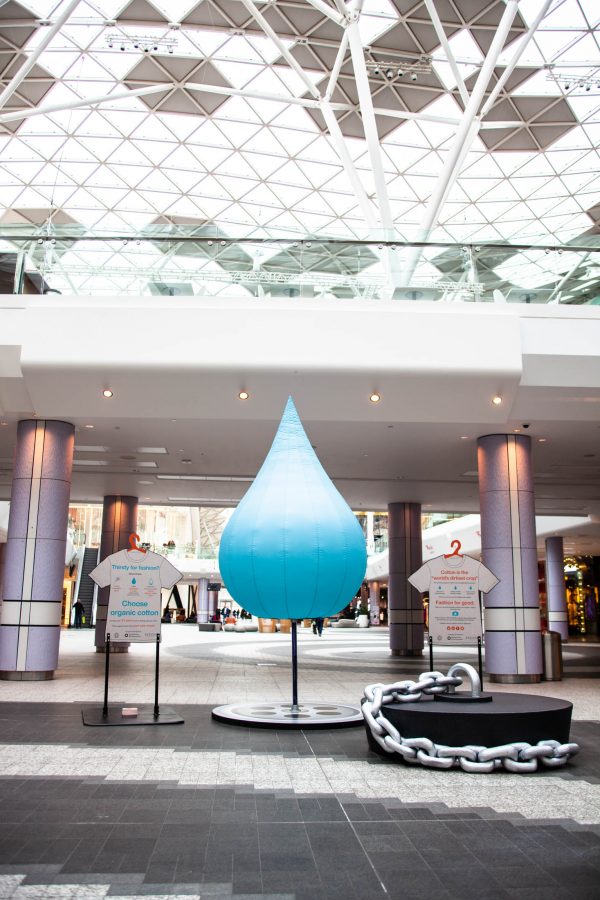London’s iconic Borough Market has teamed up with tech and logistics business Good Sixty, which focuses on independent food retailers, to create a new online market shopping experience in the capital. Advances in technology have given people the option of carrying out their weekly shopping online and Borough Market is the first UK produce market to participate in this growing trend by launching a ‘click and collect’ shopping option for customers, along with a sustainable local delivery service powered by zero emission electric bikes.

Although steeped in tradition through its 1,000–year history, London’s oldest market has long been a pioneer of sustainable innovation – such as with the installation of its water fountains in 2017, drive to eradicate single use plastic bottles and the recent introduction (in September 2019) of compostable bags for traders to use. Driven by the vision of Borough Market’s charitable trust, and the technology developed by Good Sixty, the Market is preparing for this exciting next stage in its evolution as a provider of world-class national and international produce.
The Market’s online shopping platform is available now for customers to order delicious produce from a wide range of participating Borough Market traders, and those that like to forward plan will also be able to book their slots for Christmas deliveries. Shoppers can visit as many of the trader pages as they wish, adding goods to a virtual shopping basket as they go. Once the order is placed, Good Sixty will gather the produce from the relevant traders and place them in a designated hub within the Market. From here, customers can either collect their order at the Market between 12pm and 9pm – perfect for London’s commuters – or it will be dispatched via state of the art zero-emission electric cargo bike to their address at a pre-booked time slot.
At launch, the delivery service will be available to residents within a 1.5-mile radius of the Market, (please see attached map for service coverage) with a view to expanding across London in 2020.
Darren Henaghan, Managing Director, Borough Market said: “Those who shop at Borough Market do so because they know that the produce here is high quality, sustainably sourced and often unique. While shoppers will continue to want to peruse our many market stalls – taking in the atmosphere, speaking to our knowledgeable traders and discovering something new – we are delighted to be working with Good Sixty to offer an alternative to those who for whatever reason are unable to make it down to us in person. Our online service will ensure that more people are able to regularly get hold of ingredients that they simply wouldn’t be able to find elsewhere. We have listened to what our customers want and are excited to be able to spread our wings in this way, focusing first on local customers in London, but with a view of increasing our reach later down the line.”
Good Sixty was founded in Bristol in 2016 and it currently operates a similar service for local retailers in Bristol and Bath.
Chris Edwards, Founder and Managing Director, Good Sixty said: “We are absolutely thrilled to be working with Borough Market. The quality and provenance of the produce is outstanding, as is the traders’ passion in what they do. The new service has been designed to reflect these qualities online, giving users real insight into each stall and the individuals behind them. Discovering new delicacies and the traders who make the Market so special makes shopping on the platform really enjoyable. And what is more, the service will make the Market accessible to many more, opening it up to those who love shopping there but don’t always have the time to explore it on foot. Through Good Sixty, people will be able to shop seamlessly and securely and have their favourite produce from Borough delivered directly to their door. The new platform not only helps support Borough’s independent retailers and producers but ensures the Market is ready for the future, offering Londoners an ethical way to shop online. Borough Market can become a place where more people do their weekly shop, instead of having to rely on supermarkets. This is why we’re called Good Sixty – because research shows that every pound you spend with a local independent producer has a 60% greater benefit to your local community than spending it with a large supermarket.”
To order unique and delicious UK and international produce from a range of Borough Market’s traders, please visit http://boroughmarket.org.uk/online. Orders can be placed from Monday 21st October.
Map showing 1.5 mile radius for Electric Bike Deliveries:
 Customers can visit the Borough Market/Good Sixty online ordering page to check postcode eligibility for electric bike delivery, or choose to use the click and collect service.
Customers can visit the Borough Market/Good Sixty online ordering page to check postcode eligibility for electric bike delivery, or choose to use the click and collect service.













